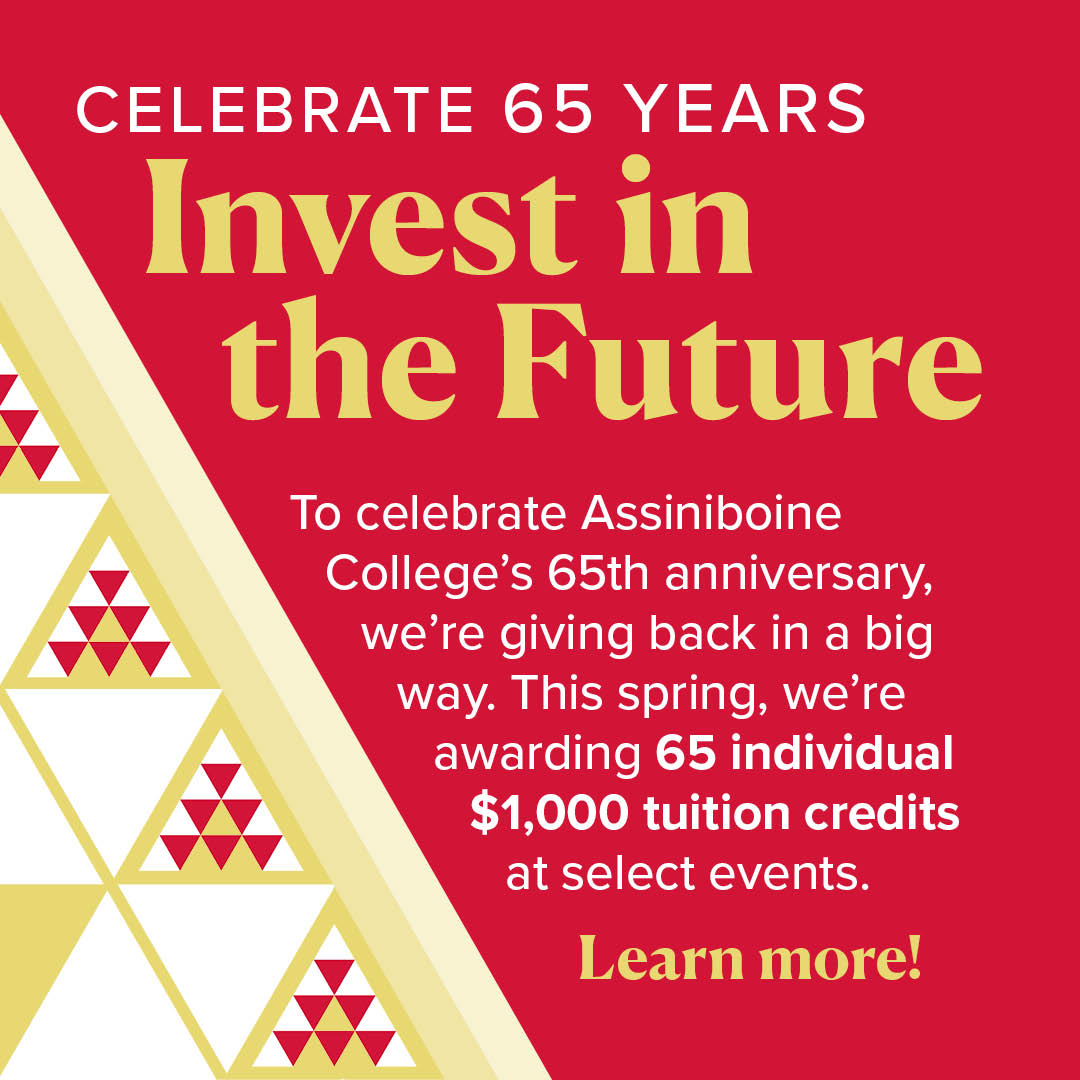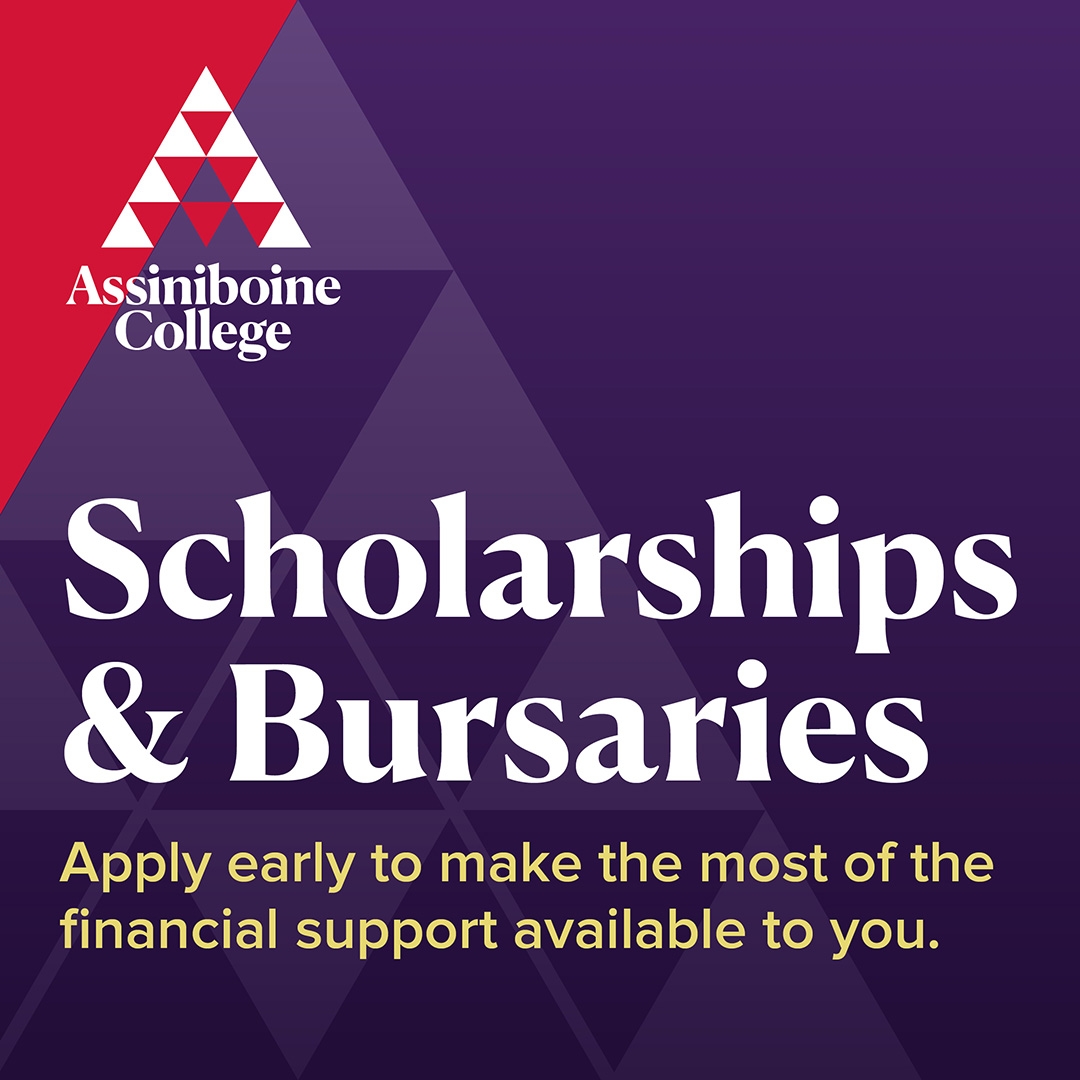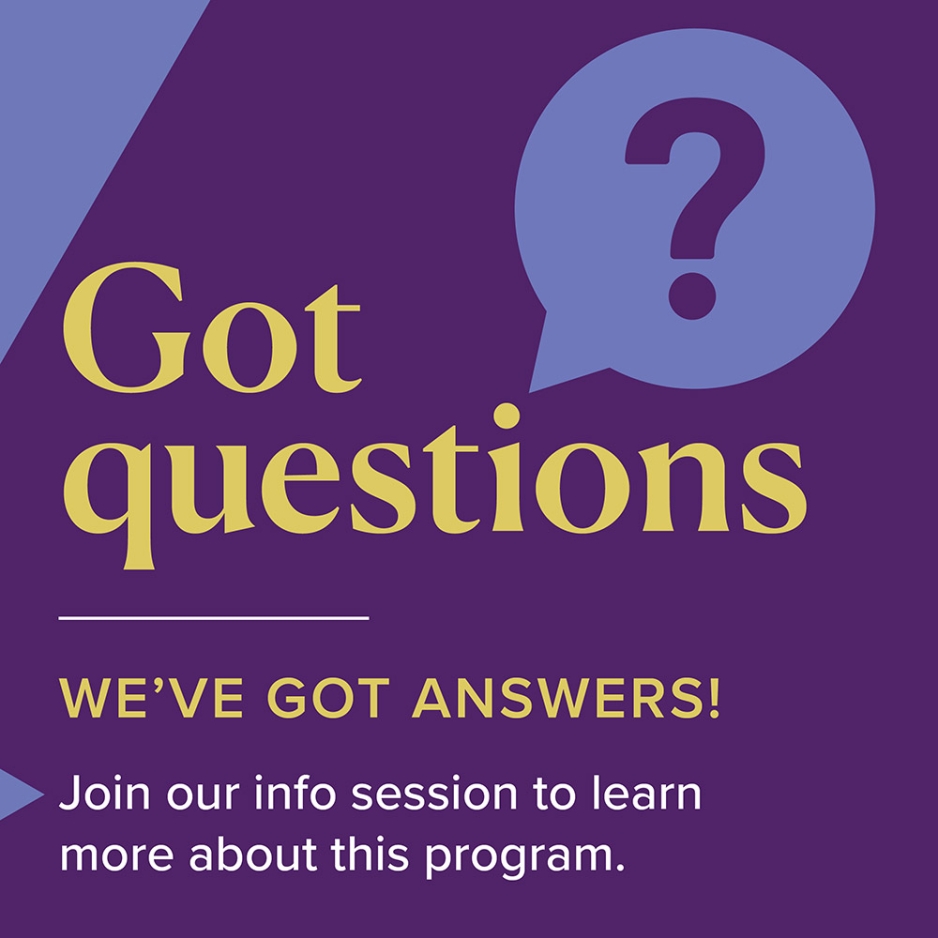Overview
Assiniboine’s nine-month Education Assistant certificate program prepares graduates to help children and youth succeed in a variety of settings.
Educational assistants support children and youth using a variety of techniques to facilitate learning, communication, rehabilitation, social skills and increased independence. Educational assistants in schools, support inclusive practices by working collaboratively in assisting students with diverse needs and abilities while fostering engagement in the learning environment.
Program Learning Outcomes
- Engage in caring, responsive relationships with children and families that value and respect social, cultural and linguistic diversity.
- Implement inclusive learning and care strategies that support equitable, accessible and meaningful learning opportunities.
- Follow established procedures and policies to maintain health and safety practices that support healthy development and wellbeing.
- Use established observation strategies, documentation and communication skills.
- Comply with current legislation, regulations and agency policies and procedures in daily work.
- Work collaboratively with others to maintain quality education and care.
- Develop and implement an ongoing professional learning plan to enhance performance as an educational assistant.
Examples of what education assistants can do:
- Support and implement individualized education and intervention plans based on special needs of clients.
- Assist individuals with physical, intellectual, visual and hearing disabilities or multiple disorders to develop academic and life skills.
- Support individuals and their families in the use of rehabilitative techniques, prosthetic devices, wheelchairs and other equipment designed to maximize clients' independence and potential.
- Collaborate with specialists, such as rehabilitation counsellors, speech-language pathologists and occupational therapists, to implement programs for clients' special needs.
Success Factors
You might be a good fit for this program if you would enjoy:
- A short program leading to employment in an educational setting.
- Assisting English language learners as well as individuals with behavioural, physical, intellectual, visual and hearing disabilities or multiple disorders to develop academic and life skills.
- Continually learning and adapting to changing conditions and advancements in the field.
- Working with children under the guidance of teachers and an multidisciplinary team.
The industry and program environment require individuals to:
- Be certified in cardiopulmonary resuscitation (CPR) Level C.
- Be reliable, punctual, and regularly attend work.
- Communicate and collaborate effectively with others such as teachers, rehabilitation counsellors, speech-language pathologists and occupational therapists.
- Complete responsibilities requiring stooping, bending, sitting, and standing.
- Comply with current legislation, regulations and policies and procedures.
- Follow standardized work methods and processes while working with individuals to support learning and function in the language of classroom instruction and at the level of knowledge required of the students (e.g., in English, Mathematics, etc.).
- Listen to direction and act on that accordingly.
- Move around and work within the learning environment.
Admissions
Admission Requirements
Domestic Applicant
- A complete Manitoba Grade 12 or equivalent
- Current criminal record vulnerable sector check
- Current child abuse registry check
- Proof of current certification in cardiopulmonary resuscitation (CPR) Level C**
- Proof of English Language Proficiency, IELTS score of 6.0 with no sub-score below 5.5, or equivalent if educated outside of Canada or in a country not on the test exempt list
**Only required for Distance Education applicants
International Applicant
- A complete Manitoba Grade 12 or equivalent
- Current criminal record vulnerable sector check*
- Current child abuse registry check*
- Proof of English Language Proficiency, IELTS score of 6.0 with no sub-score below 5.5, or equivalent if educated outside of Canada or in a country not on the test exempt list
*If not living in Canada at the time of admission, the criminal record vulnerable sector and child abuse registry checks will be waived. These checks will be checked and monitored by the school to determine eligibility to complete field practice.
If you received your education outside of Manitoba, please review the equivalent admission requirements: Interprovincial or International.
English is the language of instruction at Assiniboine. All applicants educated outside of Canada or in a country not on the test exempt list are expected to meet the English language proficiency requirements.
READY TO TAKE THE NEXT STEP IN YOUR EDUCATION JOURNEY?
Start your online application today and join Assiniboine College! View the Education Assistant program application checklist for further details and get a better understanding of the admission requirements.
APPLY NOWprogram application checklist
Please note, we are not currently accepting applications for Distance Education for this program. We will update this page when Distance Education applications are open.
DON'T MEET ADMISSION REQUIREMENTS?
If you don’t meet admission requirements, visit our Centre for Adult Learning to upgrade courses.
Criminal Record Check/Abuse Registry Checks
Many agencies where students are placed for practicum experience require students to disclose convictions for any offenses. In some instances, applicants with a criminal record or listed on the Child Abuse Registry and/or Adult Abuse Registry may not be admitted to the program. If you fall into one of these categories, please contact the School of Health and Human Services prior to applying.
Careers & Connections
Career Opportunities
- Elementary, middle years and high schools
- Direct aides for students with special needs
- Social service agency youth workers
- Private aides for children requiring additional assistance
Connections
Graduates may be eligible to receive advanced standing in several other programs, including Early Childhood Education at Assiniboine.
Assiniboine has a number of agreements with other colleges, universities and professional organizations, making it possible to apply credit taken at Assiniboine to programs at other institutions. For information on agreements, see Articulation Agreements.
Upon completion of this program, graduates will have the following certifications:
- Respect in Schools Online Certification
Tools & Supplies
During this 16-week program, you will have the unique experience of participating in elementary school activities one day per week throughout the final 12 weeks of the program.
Our classrooms, labs and shops are equipped with the necessary equipment that you need to make the most of your experience. However, there are some tools and supplies that you will need to purchase for personal use to help you with your studies. Much of what you purchase you’ll be able to use after you graduate and begin your career. Tool and supply lists are available from the school office 30 days prior to the start date of the program.
Program Checklists, Textbooks, and Supplies
ASSINIBOINE BOOKSTORE
Textbooks, supplies and uniforms may be purchased at the Assiniboine Bookstore at the Victoria Avenue East Campus. Booklists are available from your school office 30 days prior to the start date of your program.
Technology Requirements
Students in this program are required to bring their own laptop for use on-campus. The laptop must meet the technical needs outlined by the program. See Technology Requirements for detailed information.
Courses & Costs
Costs
Estimated Program Costs (Domestic students)
| Credits | 67 |
| Tuition | $3,837 |
| Course Fees | $1,168 |
| Students' Association fees (including Health Premium) | $841 |
| Estimated textbooks, tools, and supplies | TBD |
All fees are estimated and subject to change without notice.
Estimated Program Costs (International students)
| Credits | 67 |
| Tuition and Fees | $18,476 |
| Course Fees | Included |
| Students' Association fees (including Health Premium) | Included |
| Required Health Insurance | $1,125 |
| Estimated textbooks, tools, and supplies | TBD |
Courses
To graduate with an Education Assistant certificate, students must successfully complete 30 academic credits and 2 practical credits. The minimum passing grade for each course is indicated on the course outline. Course offerings are subject to change and may vary by intake.
Course List
| Course No. | Course Name | Credits |
| PEDV-0401 | Introduction to the Profession | 6 |
| HMSV-0022 | Child Development | 6 |
| COMM-0448 | Interpersonal Communications | 6 |
| INDG-0013 | Indigenous Perspectives | 6 |
| HLTH-0030 | 1st Aid – Emergency | 0 |
| PRAC-0466 | Field Practice | 1 |
| PEDV-0356 | College Foundations | 0 |
| COMM-0449 | Observation and Report Writing | 6 |
| ECED-0066 | Guiding Behaviour | 6 |
| COMM-0450 | Language and Literacy | 6 |
| PEDV-0402 | Professionalism | 6 |
| HMSV-0023 | Strategies for Learning | 6 |
| HMSV-0024 | Inclusive Practices | 6 |
| HMSV-0025 | Cross Cultural Communication | 6 |
| TOTAL REQUIRED EDUCATION ASSISTANT CERTIFICATE CREDITS | 67 | |
Micro-Credential (DE)
Coming soon: the Education Assistant certificate program will be offered through distance education, divided into three stackable micro-credentials.
We are not currently accepting applications for this program option. We will update this webpage when this program is available.
Courses by Micro-Credential
Education Assistant Advanced Practice | 24 Credits
- Observation and Report Writing (6 Credits)
- Guiding Behaviour (6 Credits)
- Language and Literacy (6 Credits)
- Professionalism (6 Credits)
Foundation in Education | 25 Credits
- Introduction to the Profession (6 Credits)
- Child Development (6 Credits)
- Interpersonal Communications (6 Credits)
- Indigenous Perspectives (6 Credits)
- Field Practice (1 Credit)
Education Assistant Inclusive Practice | 18 Credits
- Strategies for Learning (6 Credits)
- Inclusive Practices (6 Credits)
- Cross Cultural Communication (6 Credits)
Distance Education
We are not currently accepting applications for new students into the Education Assistant Distance Education program. Students who started the program before January 1, 2026 can register for courses per the schedule below.
2025-26 Education Assistant DE Schedule
The deadline to register is the 20th of the prior month; however, you can register at any time - you don’t need to wait for the deadline. For example, for February 1st courses, the deadline to register is January 20th.
Applications are open for the full-time, on-campus, day program.
Registration options
Active Student
- If you are an active Assiniboine student in the Education Assistant program, you can register and pay online for your next course using Assiniboine Connect or complete the registration form below and email it to [email protected].
Not an Active Student
- If you are not an active Assiniboine student in the Education Assistant program but are interested in taking a course(s), you may do so up to a maximum of 12 credits. Complete the registration form below and email it to [email protected].
Once you have registered for your course, you’ll get information about your instructor, how to purchase your textbook(s) and course delivery.
We recommend that you start with one course to get a feel for the course load. After that, it's up to you how many courses you take.
Policies
Please ensure that you review our academic policies, including policy A20: Refunds, Registration, Adding and Dropping of Courses, which explains the refund policy for distance education courses; and A10: Maintaining Active Student Status, which details how often you need to complete a course to remain active in your program. You have five years to complete a program.
Frequently Asked Questions
How do I register for a course?
Once you are accepted into the program, you will receive information about how to register & pay for courses online via Assiniboine Connect. You will need a Visa, Visa Debit or MasterCard to pay online.
If you are paying by any other method, please complete a registration form and mail it in with your payment or drop off at the Registrar's Office at Victoria Avenue East, Brandon.
If you are a sponsored student and we have your sponsorship confirmation on file, you can register online and we will submit your fees to your sponsor. You can check that we have your sponsorship information in notifications in Assiniboine Connect.
What are the course start dates and costs?
Once you are accepted to the program, you can register for a course at any time (as long as you have the pre-requisite course). Please refer to the schedule located on the Distance Education tab on the Education Assistant program page for a listing of upcoming courses and prices.
What resources will I require for the course?
Please refer to the 'tools and supplies' tab on this program page for information related to course materials.
Which courses are available online?
All theory courses are delivered online through Moodle. If you have never used Moodle, enrol for the free New to Moodle course and also access other tutorials/help through the site.
Who do I contact for EA practicum?
Please contact [email protected]. Don’t forget to include your name and student number in the email.
How do I make contact with my EA instructor?
By the first day of the course start date, the instructor will contact you with a getting started email that includes your Moodle enrolment key to get started in the course. This email provides detail about your instructor and how to contact them. All emails will be sent to your [email protected] email. It is important that you check this email regularly.
Where do I get an enrolment key?
Your instructor will send you a getting started email at the start of the course. This email includes the enrolment key that you will need to access your course in Moodle.
How do I know which course to register for next?
Some courses have pre-requisite and/or co-requisite requirements. The Student Course Completion form shows those details.





